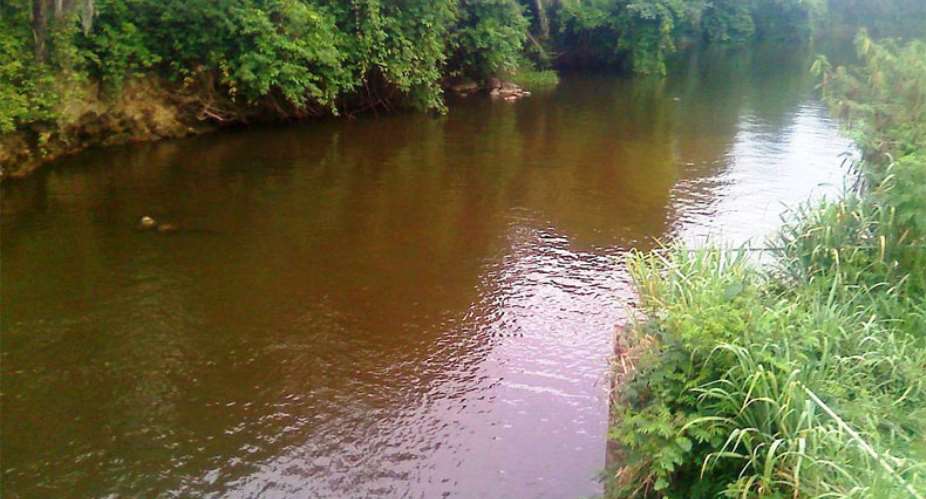We are losing the war against the degradation of the environment through reckless human activities of various sorts.
It appears no war is being waged after all, safe the conference room discussions about the negative phenomenon and its effects on the environment followed by media stories about so-called commitments to reverse the trend. When it comes to academic work on the phenomenon, there is no dearth of it in this country – not so a visible action towards managing it anyway.
A couple of days ago, a worrying spectacle of an assortment of garbage threatening to choke the Densu River, a source of water for many communities came to light.
That a water body which serves thousands or even millions of people would be subjected to such anomaly is worthy of berating. The level of apathy is unbelievable and we decline verifiable action to our peril as a people.
It is a fact that most of us do not appreciate what a good source of water means to us and how this can be contaminated when our relationship with it becomes reckless as we are witnessing today. Even the fishes and other alluvial creatures in these water bodies are threatened by our recklessness. It is just unimaginable that people can turn rivers into receptacles for their domestic and even industrial garbage.
No longer do we maintain sacred spots – some of them on the bank of water bodies where filth should not be tolerated lest the gods strike us. Modernity and its attendant drawbacks, is affecting us badly.
While some communities have complained about the negative phenomenon, most people hardly notice it let alone attempt reversing the trend.
The degradation of the environment is a global phenomenon; the rate which varies from country to country. In the Southern Hemisphere, it is aggravated – the result of multifaceted factors as noticed in Indonesia where soldiers have been deployed to clear the environment usurped by plastic wastes generated through human activities.
The only difference between our situation and the Indonesian is that their country is larger than ours hence more garbage generated there than ours.
The story about the Densu River can be said of other water bodies in the country; some of them suffering the twin trouble of being choked by filth and the activities of illegal miners.
With the onset of the rainy season, the repercussions of a contaminated river on those who depend on it for their needs should be of concern to all.
The cholera disease which depends upon filthy environments to thrive will find in our poor hygiene an ideal factor to spread.
Perhaps the relevant state agencies must change their approach to protecting our water bodies from being used as dumping receptacles for domestic filth.
Engaging the chiefs and the traditional authorities would go a long way in effecting the positive changes what we badly need.
As for the ban on plastic waste, which other countries are working towards implementing, we have no option than to follow suit.





 Minority will expose the beneficial owners of SML, recover funds paid to company...
Minority will expose the beneficial owners of SML, recover funds paid to company...
 Prof. Opoku-Agyemang has ‘decapitated’ the NPP’s strategies; don’t take them ser...
Prof. Opoku-Agyemang has ‘decapitated’ the NPP’s strategies; don’t take them ser...
 Abubakar Tahiru: Ghanaian environmental activist sets world record by hugging 1,...
Abubakar Tahiru: Ghanaian environmental activist sets world record by hugging 1,...
 Prof. Naana Opoku-Agyemang will serve you with dignity, courage, and integrity a...
Prof. Naana Opoku-Agyemang will serve you with dignity, courage, and integrity a...
 Rectify salary anomalies to reduce tension and possible strike action in public ...
Rectify salary anomalies to reduce tension and possible strike action in public ...
 Stop all projects and fix ‘dumsor’ — Professor Charles Marfo to Akufo-Addo
Stop all projects and fix ‘dumsor’ — Professor Charles Marfo to Akufo-Addo
 Blue and white painted schools will attract dirt shortly – Kofi Asare
Blue and white painted schools will attract dirt shortly – Kofi Asare
 I endorse cost-sharing for free SHS, we should prioritise to know who can pay - ...
I endorse cost-sharing for free SHS, we should prioritise to know who can pay - ...
 See the four arsonists who petrol-bombed Labone-based CMG
See the four arsonists who petrol-bombed Labone-based CMG
 Mahama coming back because Akufo-Addo has failed, he hasn't performed more than ...
Mahama coming back because Akufo-Addo has failed, he hasn't performed more than ...
